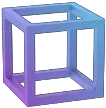Quantum AI: Next-Generation Computing Meets Advanced Analytics
Quantum AI refers to the blend of quantum computing concepts and artificial intelligence methods. Although both fields are complex on their own, their combination can lead to faster and more efficient ways of processing large amounts of data. This blog post covers how these two areas work together, potential applications, and some of the obstacles that researchers are trying to overcome.

Understanding Quantum Computing
Unlike conventional computers that use bits (0 or 1), quantum computers operate with qubits. A qubit can exist in overlapping states, which allows a quantum machine to analyze several possible outcomes at once. This ability can be especially helpful for problems where the total number of solutions grows very quickly, such as in complex data analysis or cryptography.
Despite this promise, quantum machines remain delicate systems. They often require extremely cold temperatures to reduce electronic noise. Hardware must also be carefully managed so that qubits keep their unique properties.
These challenges add to the cost and difficulty of developing quantum devices, but steady improvements in research labs have started bringing more practical models to the testing phase.
The Fusion with AI
Artificial intelligence relies on statistical methods and training data to spot patterns, predict outcomes, and make decisions. Traditional AI systems often run into bottlenecks when faced with exceptionally large or complicated datasets. By placing AI algorithms on quantum hardware, researchers hope to avoid some of these limits.
This could look like a machine learning model that learns more quickly or a system that sorts through data in new ways. If training times go down, the path from raw information to workable conclusions may get shorter. Since businesses and research institutions frequently deal with huge volumes of data, any efficiency gains are likely to be welcomed.
Potential Uses in Different Fields
- Cybersecurity: A major part of online security relies on encryption, which is difficult for regular computers to crack. Quantum systems break some existing methods but could also lead to improved protection. Researchers study new encryption strategies that can handle attacks from future quantum machines.
- Medical Research: Creating new drugs involves modeling complex chemical interactions. Since quantum devices handle certain types of large-scale simulations more effectively, they may help shorten research timelines.
- Materials Science: Understanding how atoms and molecules behave in various conditions is critical for discovering new materials. Quantum AI might speed up the testing of different molecular configurations to find stronger or lighter compounds.
- Logistics: Complex tasks like supply chain management involve scheduling and routing problems. Quantum AI may make it simpler to find better routes or timetables, lowering costs for shipping and delivery.
Key Obstacles

Quantum AI does not come without hurdles. The hardware is fragile, and the algorithms must be tailored to take full advantage of quantum properties. Many of today’s AI tools were originally designed for classical systems.
Researchers need to create models that can run smoothly on quantum devices with limited qubits. Funding and collaboration across tech companies, universities, and government agencies are helping address these issues.
Looking Ahead
Thoth AI is open to the possibilities Quantum AI presents in the future and is ready to support its development through the services we provide. As quantum systems evolve, we aim to be part of the advancement, offering expertise and solutions that help industries adapt to the next era of intelligent technology.
Quantum AI stands out for its potential to handle demanding problems quickly. As research continues to advance, it may help leaders in cybersecurity, healthcare, and other sectors reach decisions faster and with greater confidence. The combination of these two fields could open doors for solutions that, not long ago, were out of reach for standard computing approaches.



